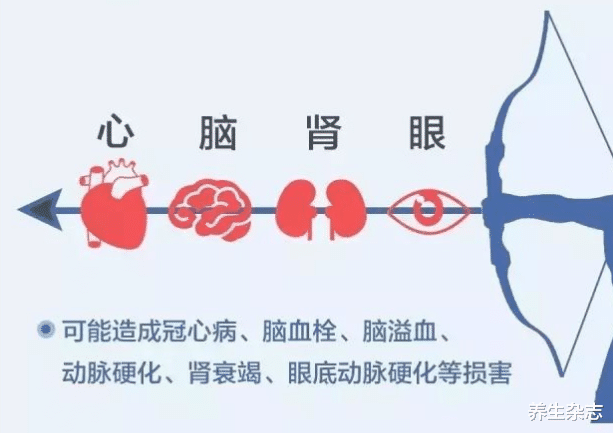Hypertension is a chronic disease that can only be controlled but not completely cured. Most people choose to stabilize their blood pressure by taking medication for a long time to reduce the risk of complications.
Although long-term use of antihypertensive drugs may cause some minor side effects, improper behavior during medication is even more harmful. Ms. Wang from Zhengzhou, Henan, is a case in point, as she has been taking antihypertensive drugs for 6 years now.
I. Ms. Wang’s Experience
Ms. Wang is an accountant. While her work is not strenuous on normal days, she becomes very busy at the end of the month or year, needing to calculate each employee’s salary and prepare the company’s financial statements.
Years of desk work have brought about several minor health issues for Ms. Wang, including hypertension. From the age of 35 to 41, she has been taking antihypertensive medication.
However, three months ago, Ms. Wang suddenly developed acute kidney failure. Thanks to prompt medical treatment, her body suffered no major consequences.
However, this outcome left Ms. Wang deeply puzzled. She had felt that her health had been stable these past few years, so how could she suddenly develop such a serious illness?
Through detailed discussions, the doctors found that this was a complication caused by hypertension. It was three things that Ms. Wang did wrong during her antihypertensive medication that led to the deterioration of her health.
II. Causes of Complications
● Not Taking Medication as Prescribed
After taking antihypertensive medication for a period of time, Ms. Wang noticed an improvement in her blood pressure. In order to minimize the harm of the medication to her body, she reduced the frequency and dosage of the medication without consulting a doctor.
Doctors point out that antihypertensive drugs on the market have undergone several clinical trials and have minimized side effects to the fullest extent. There is no need to overly worry.
Hypertensive patients should still follow medical advice and take medication regularly. Self-reducing or stopping medication not only causes drastic blood pressure fluctuations but also affects the kidneys and brain.
● Unhealthy Eating Habits
Due to work reasons, Ms. Wang stays up late and works overtime at the end of each month. She likes to drink several cups of coffee to stay alert and often orders takeout to satisfy her hunger.
Coffee stimulates the sympathetic nervous system, raising levels of adrenaline and noradrenaline. This elevates heart rate and blood pressure. Spicy and greasy takeout food can cause palpitations, increase myocardial oxygen consumption, leading to myocardial ischemia and unstable blood pressure. Therefore, individuals with hypertension should maintain a slightly bland diet with balanced nutrition in their daily lives.
● Inadequate Physical Activity
As a white-collar worker, Ms. Wang sits in the office all day. Even when she has time at home, she prefers playing mahjong with friends rather than exercising.
Prolonged sitting and lack of exercise lead to the accumulation of lipids in the body, increased blood circulation, higher cardiac input, elevated insulin levels, stimulated sympathetic nerve function, severe blood vessel constriction, heart enlargement, elevated blood pressure, and a higher risk of complications. It is recommended that individuals with hypertension choose suitable exercise based on their own situation, exercising 2 to 4 times a week for about 30 minutes each time.
III. Points to Note When Taking Antihypertensive Medication
● Maintain a Stable Mood
Although we should not underestimate hypertension, excessive panic is also not ideal when hypertension strikes. Research has shown that blood pressure is somewhat related to one’s emotions.
Some people experience increased heart rate and dizziness when extremely angry, anxious, or tearful, which indicates high blood pressure. Especially for middle-aged and elderly people, they are prone to complications such as heart attacks and strokes. Therefore, it is important to keep a calm mind. When feeling unwell, diverting attention through activities like listening to music, watching movies, or shopping can ease the mind.
● Stay Hydrated
● Early to Bed, Early to Rise
The relationship between sleep and blood pressure is interdependent. Ensuring an adequate and stable amount of sleep time every day is a shortcut to stabilizing blood pressure.
Prolonged late nights and insufficient sleep lead to decreased sympathetic nerve excitability, lowered growth hormone levels, impaired cell repair, hormone imbalances, disrupted circadian rhythms, decreased immunity, and subsequently, hypertension. For those with insomnia or difficulty falling asleep, avoid using the phone in bed; instead, listen to calming instrumental music or white noise.
Tip: Many people keep an electronic blood pressure monitor at home for convenient blood pressure measurement. However, to ensure accurate results, it’s best not to engage in strenuous exercise before measuring blood pressure, maintain a steady sitting posture, and keep the arm parallel to the heart.


